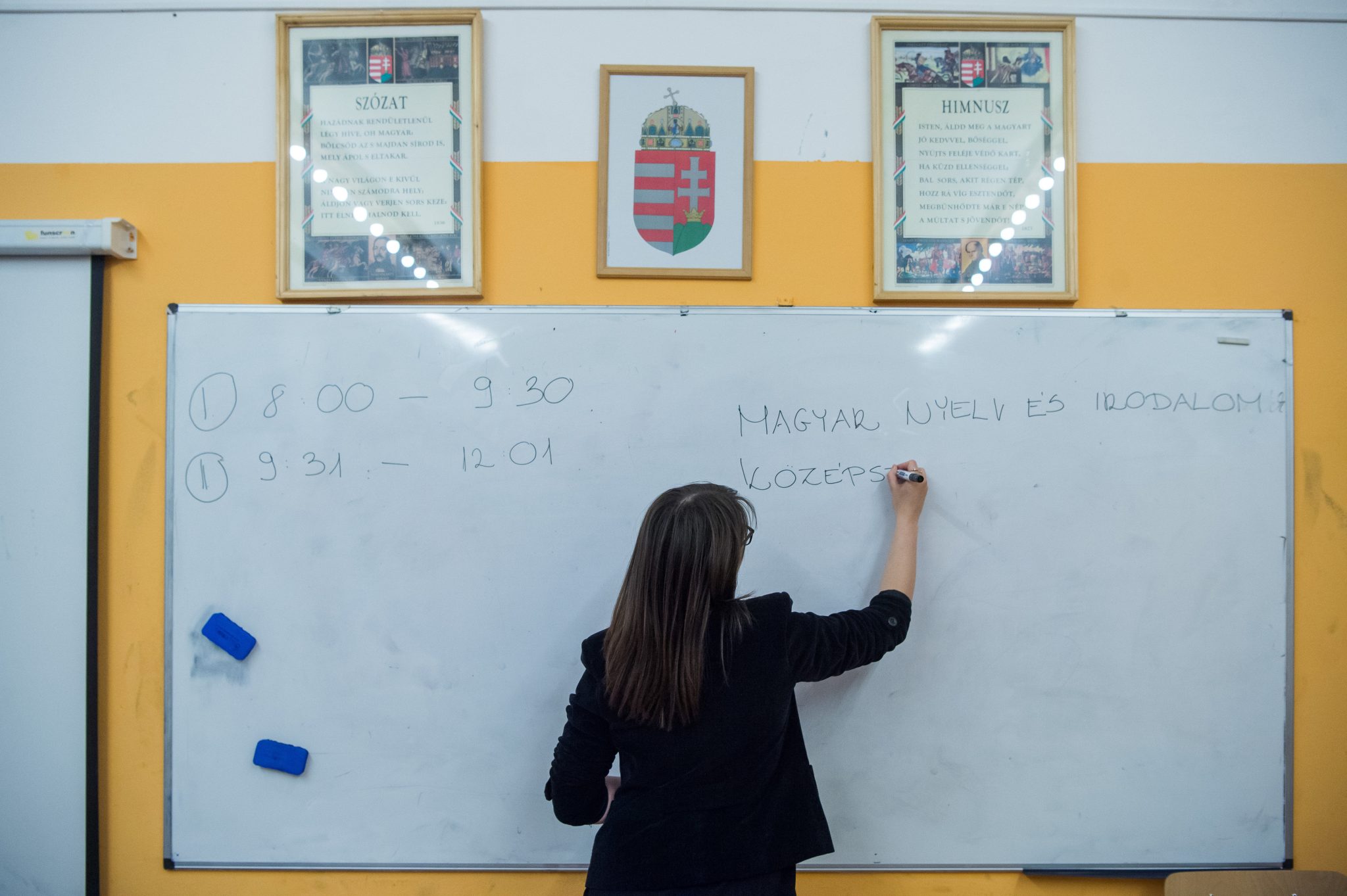
"Immediate action is needed to stop the situation in education from deteriorating further," said the Democratic Trade Union of Teachers, adding that regardless of whoever wins the election, they will continute to protest.Continue reading

Prime Minister Viktor Orbán spoke, among other things, about salary increases for teachers at his international press conference last Wednesday. Orbán said the government would make good on its promise to raise salaries by 10 percent this year and for the next two years. He acknowledged, however, that teachers rightly say this is insufficient, but added that further increases would depend on the country’s economic performance. Teachers’ unions say this offer is “ridiculously low” and are calling for at least a one-time 45% raise. The unions believe that only a significant increase in salaries and a reduction in workload could prevent the situation in public education from deteriorating. If no collective agreement is reached over the summer, there could be another strike starting in September.
This article was originally published on our sister site, Ungarn Heute.
“We will start negotiations as soon as the new government is in office. We consider the wage increase of 10 percent this year and 30 percent in three years announced by the Prime Minister to be ridiculously low,” Erzsébet Nagy, spokeswoman of the Democratic Teachers’ Union, reacted to Viktor Orbán’s statements about salary increases for teachers. (Yearly inflation is already close to 10 percent, according to the state’s statistical office, and the situation is expected to further deteriorate).
The union is demanding a significant wage increase for education workers as well, i.e., school and kindergarten secretaries, administrators, teaching assistants, and maintenance workers, said Tamás Totyik, vice president of the teachers’ union.
As more and more people retire from teaching (far more than the number entering the profession), they highlight one of the system’s most burning problems.
While last year 9,791 people applied to study teaching at universities, this year only 8,600 applied… Moreover, experience shows that usually one-fifth of those admitted go on to professional careers, while the rest try to make a living elsewhere,”
said the vice-chairman.
He stressed that if the government does not recognize that wages need to be raised significantly, especially for young people, we will not be able to attract them to the profession.
We definitely want to negotiate with the government as soon as possible, no matter who is in charge of public education,”
Totyik further emphasized.
The teaching unions will even launch a photo campaign to draw attention to the seriousness of the situation.
“We ask colleagues to take a series of photos showing how many young, middle-aged, and retired colleagues are working on the teaching staff. From this we can see the dramatic increase in the average age of our teaching staff,” said Erzsébet Nagy, spokeswoman for the Democratic Teachers Union.
Education researcher, Péter Radó, pointed out in an article published in Portfolio that the workload of teachers in Hungary is exceptionally high compared to other countries.
The unions representing teachers’ interests believe that a fixed teaching time of 22 hours per week is appropriate, but would also accept a reduced workload of 24 hours per week. The union leaders also said that until the new government is in place, they would survey their colleagues to find out what other problems they have. In the strike talks, they would like to present a comprehensive package of proposals.
A few days ago, a young teacher addressed Viktor Orbán (whose mother was also a teacher) in an open letter, asking him the question: “If your mother were a young teacher now, would you be sorry to pay her the salary that is absolutely necessary to live a decent life?”
The letter writer reported that after six years of education, she received her diploma as a high school teacher in July 2021, but immediately faced several problems: as a young professional, she had only 160,000 forints net (about 450 euros) at her disposal, almost half of which was used for subletting, although she lived with university students who usually partied at night.
When even the school principal noticed that I shouldn’t come to work as a corpse, I had to move: I found a moldy basement apartment of 17 square meters for 70,000 forints (195 euros) a month.
The young teacher also calculated that she works 57 hours a week if she includes not only school lessons but also other tasks related to her work. “For 57 hours a week, I receive 160,000 forints (about 450 euros) in a month. This corresponds to a net hourly wage of 701 forints (about 2 euros).
Source: Portfolio
Featured image via Attila Balázs/MTI